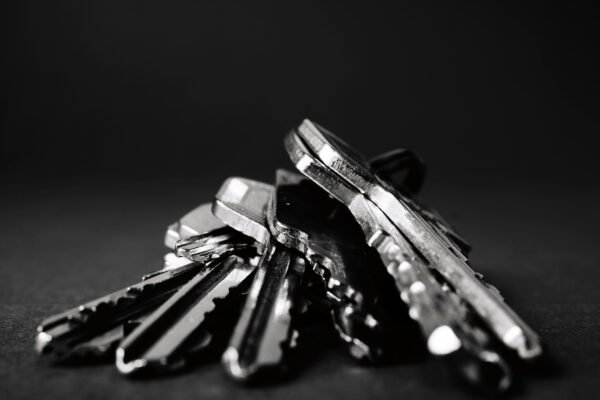
The Top 6 Key Cutting Myths and Misconceptions

If you’ve ever had a key cut, you might think it’s a straightforward task. And while the process can be quick and simple with the right tools, there’s actually a fair amount of misunderstanding around key cutting. From “one-size-fits-all” myths to questions about security, there are quite a few misconceptions floating around. Let’s clear the air on six common myths, so you can feel more informed and confident the next time you need a key cut.
Myth 1: All Keys Are the Same, So Any Key Cutter Will Do
This is a classic misconception. Not all keys are the same, and a professional key cutter knows that each type of key demands specific tools and skills. Think about it: house keys, car keys, high-security keys, and even keys for safes all vary significantly. Some might have intricate grooves, laser cuts, or advanced electronic components. Locksmiths are trained in key cutting and know how to handle these differences, ensuring that each key is cut to its exact specifications. A general key-cutting machine can handle standard keys, but for anything more complex, you’ll want someone who understands the finer details of different key types.
Myth 2: You Only Need One Copy of a Key
It’s common to think, “Why have extra copies if I already have the one key I need?” But anyone who’s been locked out of their home or misplaced their only key knows that having backups is a lifesaver. Imagine a situation where you lose that one key and don’t have a spare—you’re now dealing with an urgent lockout and may need to call a locksmith to get back in. Having at least one backup key (preferably two, just in case) is a simple way to avoid future hassle. Even if you’ve never lost a key before, why risk it?
Myth 3: Getting Keys Cut by a Locksmith is Expensive
Many people avoid going to professional locksmiths because they think it’ll be too pricey. The truth? Locksmiths offer a range of services, and prices vary based on the type of key and complexity of the job. Standard house keys can often be cut affordably, and even more specialised keys are reasonably priced when you consider the precision and skill involved. Plus, locksmiths usually offer peace of mind: you’ll know the key is cut correctly and securely. Going to a professional can often save you the headache of dealing with a poorly cut key that doesn’t fit or breaks quickly.
Myth 4: Key Cutting is Just a Simple Copying Process
It’s easy to assume that cutting a key is no more than copying a metal shape. But there’s actually quite a bit more to it! Key cutting involves a high level of precision, especially for modern high-security keys. Even a tiny error can make a key unusable. Professional locksmiths understand this, using specialised machines and techniques to get the job done accurately. They’re trained to deal with tiny variations in angles and depths, which are crucial in ensuring the new key works just as well as the original. It’s not just a copy—it’s a meticulous process of matching, measuring, and quality-checking.
Myth 5: Any Old Key Will Work in Your Lock
You might have heard that as long as a key “fits,” it should work. This isn’t true. Keys and locks are designed with specific tolerances, meaning the exact shape and depth of the key’s cuts must align perfectly with the lock’s pins. When you force a poorly cut key or the wrong key type into a lock, you risk damaging the lock or even snapping the key inside. Locksmiths make sure each key is cut to match the exact design required for your lock. It’s not worth taking a chance with just any key; getting it right from the start will save you from repairs or replacements down the line.
Myth 6: You Can Duplicate Any Key, Anytime
Ever seen a key stamped with “Do Not Duplicate”? Certain keys are made with restricted access to keep them secure. These could be keys for private residences, high-security facilities, or specific types of commercial locks. Locksmiths respect these restrictions and won’t cut restricted keys unless they have proper authorisation. Trying to duplicate these keys without permission can lead to legal issues, and a reputable locksmith will always follow regulations to ensure security. So, while you can duplicate many keys, restricted keys are a different story, and for good reason. If you have one of these keys, speak to a locksmith who can guide you on authorised duplication methods if needed.
Final Thoughts on Key Cutting
Whether you’re making a spare for peace of mind or upgrading to a more secure option, understanding the truth behind key cutting can make a big difference. There’s much more to it than meets the eye, and professional locksmiths bring invaluable skill and knowledge to the table. The next time you need a key cut, you can feel confident knowing you’re in good hands—no myths, just practical solutions and expert precision.














































